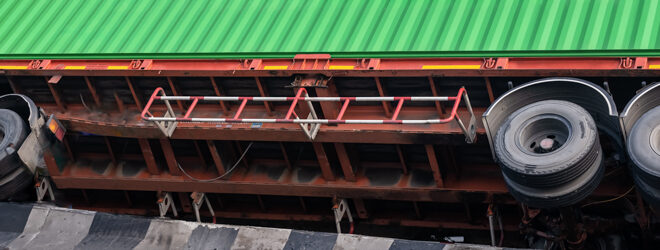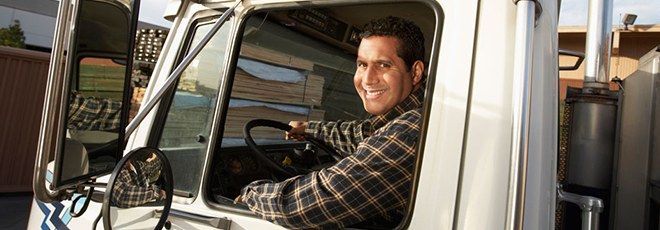As cliché as it may sound, the drivers who are responsible for fresh produce always need to keep their cool.
Temperatures inside a trailer might need to be maintained at an unwavering 2 Celsius to ensure that the contents do not rot or freeze. This is despite the fact that the load itself might need to travel from the heat of the American south up to the Canadian north.
A well-maintained reefer can make the difference – as long as there is a clear path for the temperature-controlled air. If that airflow is blocked, goods near the nose of the trailer might begin to freeze, and those near the barn doors can begin to spoil.
Many obstructions can be traced to loading procedures. Stack the goods too high, for example, and the air chutes can be blocked. But the challenges are not limited to the upper reaches of a trailer. Dirt and debris can also block the spaces in a trailer floor which drain water and allow air to flow underneath. This is one of the reasons why it is so important to inspect and sweep an empty trailer clean. Special brooms have been designed for this very task.
The inspections do not end there. A trailer’s insulating panels and door seals need to be regularly checked for damage. And the chute that delivers air from one end of the trailer to the other has to be checked for rips and tears, to ensure that the cooling air is delivered where it is needed most.
Of course, cargo also needs to be at the proper temperature before it is loaded in the first place.
A careful reading of such temperatures can help to reduce the disagreements which lead to cargo claims. An accurate measurement will involve using a digital pulp thermometer at the outer edge of the load as well as at the middle of a skid.
When programming temperature settings, a clear line of communication can be just as important as the clear channels in a trailer’s floor. Any difference between the temperatures referenced by shippers and buyers need to be reported to dispatchers right away. The proper readings can then be confirmed through a simple email that will leave nothing to chance.
Technology can make a difference, too. Advances in reefers now make it possible for everyone to monitor temperatures throughout a trip, and even spot challenges like a reefer that is running low of fuel.
When dealing with perishable goods, every load will certainly be a pure example of a just-in-time delivery. Careful trip planning techniques and sometimes team drivers will often be needed to ensure that cargo keeps moving while still complying with hours of service rules. Routes might even need to be revised to avoid weather conditions that threaten to introduce unwanted delays.
If too much time is lost, the otherwise valuable goods might be good for little more than producing compost.
Perish the thought.




